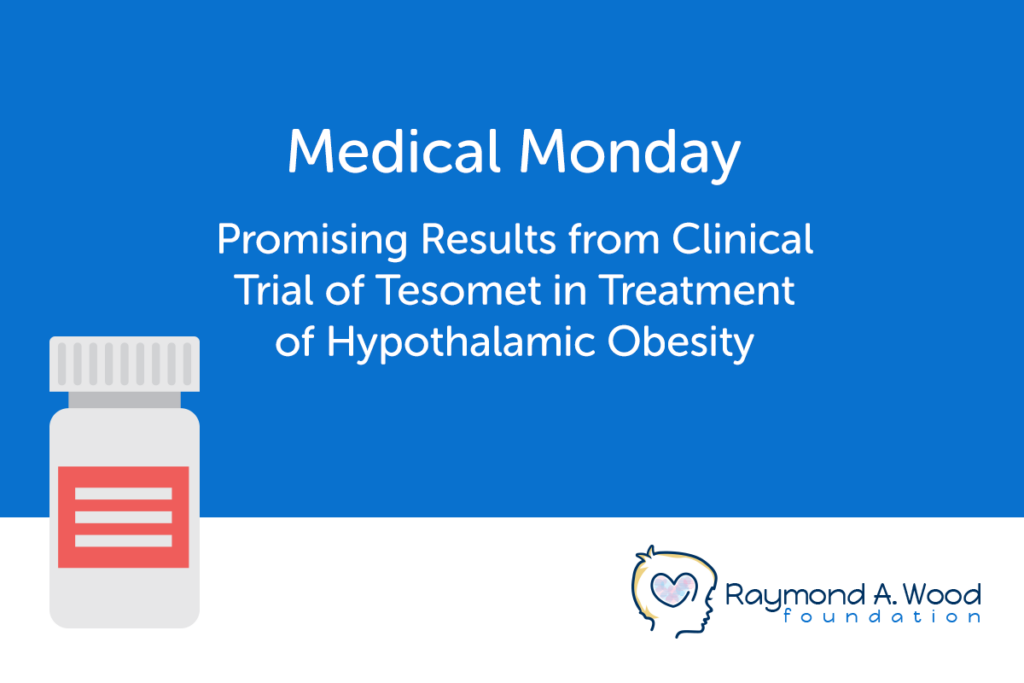Last week, Saniona, biopharmaceutical company focused on rare diseases, announced top line results from its 24-week double blind, randomized, placebo-controlled Phase 2 trial evaluating the safety and efficacy of Tesomet in patients with hypothalamic obesity (HO).
Tesomet is a fixed-dose combination of tesofensine and metoprolol, currently in mid/late stages of development for the treatment of clinical trials for treatment of Prader-Willi Syndrome and Hypothalamic Obesity.
Hypothalamic obesity (HO) is a potentially devastating side effect of brain tumors of the pituitary/hypothalamic region. When the hypothalamus is impacted by these tumors or treatment of these tumors, it can lose the ability to maintain the body’s metabolic processes. This can often result in rapid weight gain and insatiable hunger known as hyperphagia. Weight gain in patients with severe HO cannot be controlled by diet and exercise and can cause other comorbidities including type II diabetes and non-alcoholic fatty liver disease. To-date, there is no real treatment of this condition and it can severely affect the health and quality-of-life of patients that face many other post-tumor challenges.
The study results showed that Tesomet was safe and well tolerated. Furthermore, robust efficacy data was also reported, with statistically significant improvements in body weight, waist circumference, and glycemic control observed with Tesomet treatment compared to placebo.
Clinical Trial Inclusion Criteria:
-
Informed consent obtained before any trial-related activities
-
Males and females, aged 18-75
-
Confirmed diagnosis of HO
-
BMI ≥27 kg/m2 (where overweight is related to the HO)
Clinical Trial Exclusion Criteria:
-
BP ≥160/90 mmHg HR ≥ 90, <50 bpm
-
Type 1 diabetes, Cushings disease, acromegaly, hypophysitis, infiltrative diseases or Prader-Willi syndrome
-
Heart failure New York Heart Association (NYHA) level II or greater, decompensated heart failure
-
Previous myocardial infarction or stroke within the last 5 years
See the full inclusion/exclusion criteria for the study as listed on clinicaltrials.gov.
Highlights from top-line study data include:
-
Tesomet was found to be safe and well tolerated. Side effects seen more frequently in treated patients include sleep problems, dry mouth, and headache, which are well known side effects associated with tesofensine and/or metoprolol.
-
There was a single case of Tesomet related anxiety/paranoia reported as a Serious Adverse Event (SAE), which improved after discontinuation of treatment.
-
There were no clinically meaningful differences in heart rate or blood pressure between treatment groups. 18 of the 21 study participants completed the placebo-controlled part of the study (2 dropouts in placebo group; 1 dropout in treatment group) and have entered the open-label extension for an additional 24-week period.
-
Treatment with Tesomet led to a statistically significant 6.8% average reduction in bodyweight compared to placebo (p < 0.001). Average waist circumference of Tesomet treated patients was significantly reduced by 7.9% compared to placebo (p < 0.001). Tesomet treatment improved glycemic control as measured by a statistically significant 14.6% reduction in hemoglobin A1c (HbA1c) compared to placebo (p = 0.015).
This randomized, double-blind, placebo-controlled Phase 2 trial evaluated Tesomet (tesofensine 0.5 mg + metoprolol 50 mg) administered daily in patients with HO, conducted at Rigshospitalet in Copenhagen, Denmark.
“We are highly encouraged by the promising safety and efficacy observed in our Phase 2 randomized controlled trial,” said Rami Levin, President and Chief Executive Officer of Saniona. “This is an important accomplishment that we believe is a step forward towards a possible first approved treatment for HO. We recognize the importance of discovering a treatment for this devastating rare disease and are committed to rapidly advancing Tesomet for HO patients. We are evaluating next steps for the development of Tesomet in Hypothalamic Obesity and intend to pursue an End of Phase 2 meeting with FDA to define a regulatory path forward.”
A webcast of the study results will be presented tomorrow, April 28, 2020 at 10am EDT by the Principle Investigator. More information »

